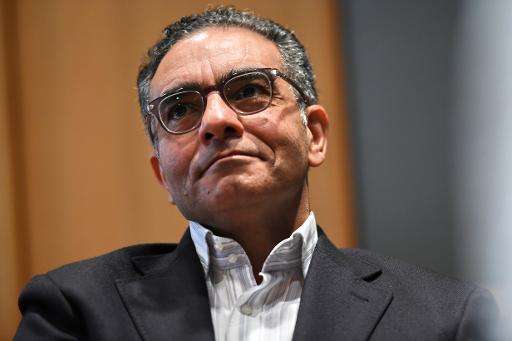ICANN sees privatization of Internet management soon

The head of the nonprofit group that oversees the world's Internet addresses expressed confidence Thursday that it would be privatized and out of US government control by year's end.
Fadi Chehade's comments came despite criticism in the US Congress, where some lawmakers have resisted the plan to end Washington's key management role in the Internet Corporation for Assigned Names and Numbers (ICANN).
Chehade said all the necessary components for a new stewardship scheme are accounted for and there will be "major legitimizing endorsements" from several countries in coming weeks.
"It is now up to the community to wrap them up, put them in a nice little box with a bow and ship them to Washington," Chehade said, of the pieces of a plan to supplant a contract ICANN has with the US Department of Commerce.
The comments come a year after the US government said it would end its technical oversight role for the Internet domain system, with the stipulation that it be managed without direct control by governments or intergovernmental bodies like the United Nations.
The US plan seeks to turn over this function to what Chehade calls a "global multistakeholder community."
Chehade said a growing number of countries, including China and Brazil, have voiced support for this new system.
"When we started we heard things like the UN would take over or China will fragment the Internet. Everyone was in threat and defense mode," he said.

"Now that China has come to the table, and Brazil has done the same, government after government is showing support."
Chehade said some 150 countries now support the shift of ICANN oversight away from the US government to a globally representative group of governments, civil society and businesses.
'Neutral, well-governed'
ICANN is in charge of assigning Internet domain names and the numbering codes that lie behind online addresses. The California-based nonprofit has been overseen by the US government since its inception in 1998, under a contract that expires on September 30.
"I feel the proposal will lead us to a global, independent, neutral, well-governed organization," Chehade said.
He was optimistic the shift from US oversight would take place by the end of this year, but cautioned that political timetables tend to be elastic.
Chehade dismissed concerns brought up at a House hearing on Wednesday that ICANN was not transparent or accountable enough, saying the organization is open to anyone with ideas regarding how it could be better.
"I welcome the fact that Congress is constantly scrutinizing us; that everyone in the world is constantly scrutinizing us," Chehade said. "We should always be on top of our game."
Representative Bob Goodlatte said there had been "concerns routinely expressed by a wide array of stakeholders about ICANN's trustworthiness, accountability, execution and transparency of its current and existing duties and initiatives."
The lawmaker also lamented ICANN's "refusal to deal responsibly with registries that profit from the trafficking of counterfeit drugs and even controlled substances like heroin."
Last year, some critics in Congress argued that Washington was "giving away" the Internet, posing long-term threats to online freedom and commerce.
Some in Washington have complained that ICANN has failed to crack down on groups that abuse the system, citing domains such as .sucks, which according to critics encourages celebrities and companies to pay out large sums to keep certain websites from going public.
ICANN says it lacks the authority to look into questions of specific abuses but has passed the matter to government regulators.
"I am not a regulator," Chehade said.
© 2015 AFP





















